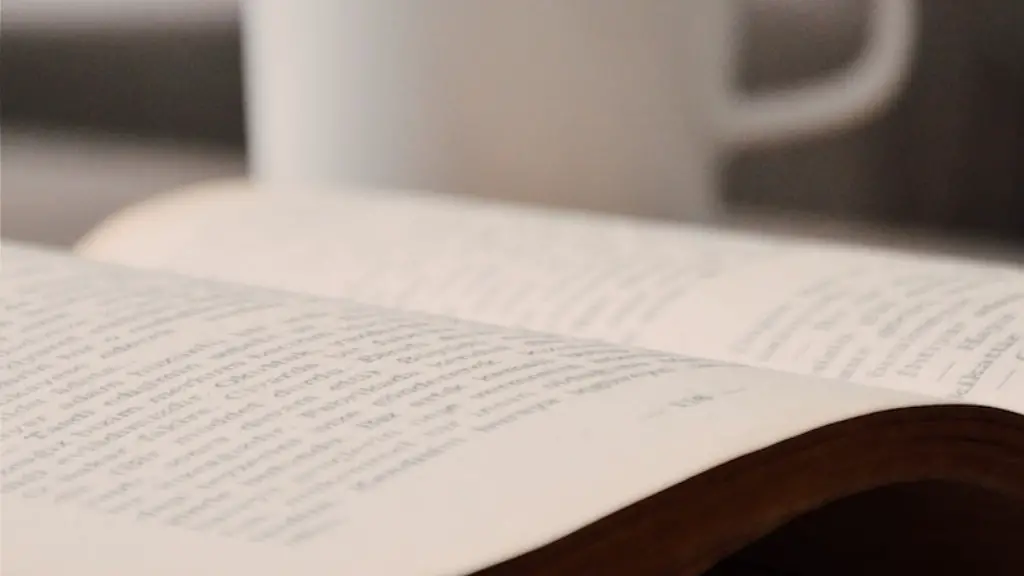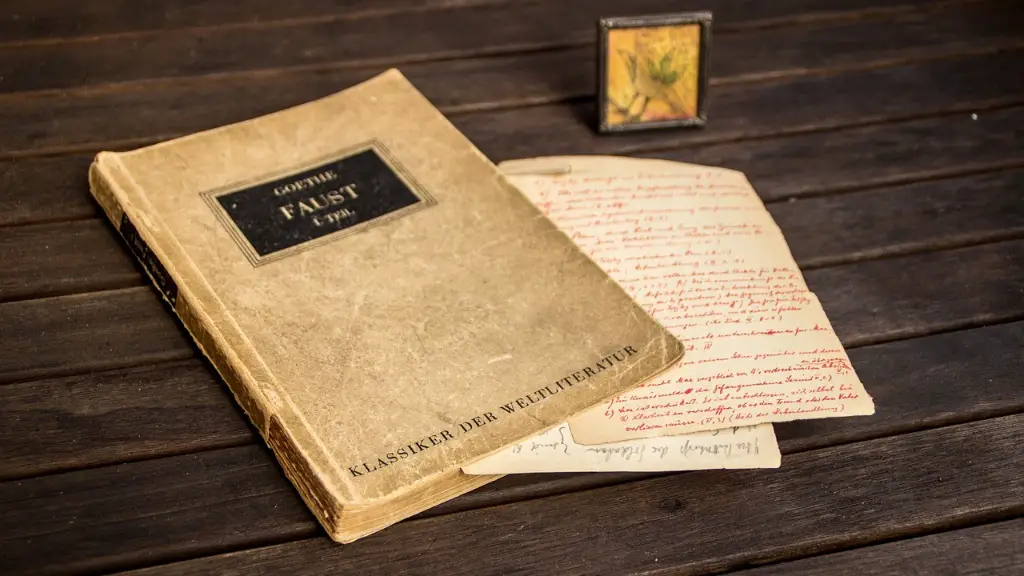1. What is a poetry conclusion?
A poetry conclusion is the final part of a poetry essay about a particular poem. It is the writer’s chance to sum up the key points of their analysis and draw the reader’s attention to the poem by making the key ideas stand out. A conclusion should be a brief but meaningful summary of the dominant points, main messages, and themes from the essay. It should be a natural conclusion that is not too abrupt and leaves the reader with a satisfying sense of closure for the essay.
2. Teaming up the introduction and conclusion
The introduction and the conclusion should work together in tandem to create an effective essay. The introduction should set the scene for the essay and draw the reader in. The conclusion should build upon the introduction and provide closure by summarizing the main points of the essay, without the audience feeling too abrupt. Ideally the conclusion should be in line with the tone of the essay, mirroring the opening paragraph as much as possible.
3. Editing the conclusion
Once the conclusion is complete it should then be edited or rewritten if necessary. This editing should involve rewriting sections to make sure they are concise and to keep the reader engaged. It should also involve ensuring that the ideas and facts are clear and the essay flows naturally.
4. Striking a balance
When writing a conclusion for a poetry essay it is important to strike a balance between summarizing the essay and providing an extension of the main points. It should provide closure for the essay and capture the reader’s attention by reaffirming the message of the poem. An effective conclusion will draw on the evidence from the essay and bring it all together in a unified way.
5. Remembering to include the poet and the poem
The conclusion should not forget to include the poet and the poem under analysis. Acknowledging the poet’s voice and the poem itself is important to reiterate the essay’s message and provide closure. It is important to ensure that the poet’s voice is featured in the essay, as well as the poem, as that is what the essay is about.
6. Using the right tone
When writing a conclusion, it is important to use the right tone and find words that will leave the reader with a sense of closure, without the essay sounding too abrupt. Writing in a confident and authoritative tone can help to convey the essay’s message effectively. The conclusion should be written with clarity and skill to create the desired effect.
7. Invoking emotion
One way to capture the reader’s imagination when writing a conclusion for a poetry essay is to evoke certain emotions. This can help to draw the reader in and leave them thinking about the essay’s message even after they have finished reading it. Therefore it is important to invoke certain emotions that relate to the essay’s message and the key points in it.
8. Addressing the reader directly
It can be effective to address the reader directly in the conclusion. This helps to include the reader in the conclusion and make them feel connected to the essay. It can create an interactive element in the conclusion and bring to life the ideas and points covered in the essay.
9. Adding a call to action
Another way to effectively conclude a poetry essay is to include a call to action. This can be a discussion point related to the poem’s meaning, or it could be a challenge for the reader to look deeper into the poem and its message. This can be a powerful way to end the essay and solicit an emotional response from the reader.
10. Creating a memorable closure
The conclusion should be written in a way that creates a memorable closure for the essay. The main points, evidence and themes should all be linked together in an effective and cohesive way. This should create a powerful ending for the essay and one that will encourage the reader to think about the essay’s message even after they have finished reading it.
11. How to Interpret Symbols
When writing a poetry essay it is important to consider the poem’s symbols and how to interpret them. Symbols can be used to explore deeper meanings in the poem and the key messages, and they can be indicative of the larger picture. There are various techniques to interpreting symbols and understanding the layers of meaning they can have. It is important to take this into account when writing a conclusion for the essay and highlighting the important points.
12. Using Literary Devices
By capturing the poem’s literary devices, such as alliteration, imagery and metaphor, in the conclusion can be a powerful way to secure the message and provide closure. These devices can add emotional and creative flair to the conclusion as they bring the poem to life. They can also add a unique touch to the essay which will help to create a lasting impression in the reader’s mind.
13. Exploring Theme and Form
The form and theme of the poem are important components in any poetry essay. Exploring the poem’s structure by discussing such elements as rhyme, meter and tone can help to capture the essay’s message more effectively. It is important to bring these elements and the poem’s themes together in the conclusion to create a more effective essay.
14. Analysing Language and Literary Techniques
The poem’s language and literary techniques can also be explored when writing a conclusion for a poetry essay. Analyzing literary elements such as simile, diction and metaphor can help to identify the main points and draw on the evidence from the essay. This should help to create an effective conclusion that captures the poem’s essence and the essay’s key messages.
15. Connecting the Essay to the Reader
The essay should also be connected to the reader in the conclusion. A successful essay should make the reader think about the poem and its meaning, and create a conversation between the reader and the poem. The conclusion is the perfect opportunity to make this connection and ensure that the essay’s message is effectively communicated to the reader.



